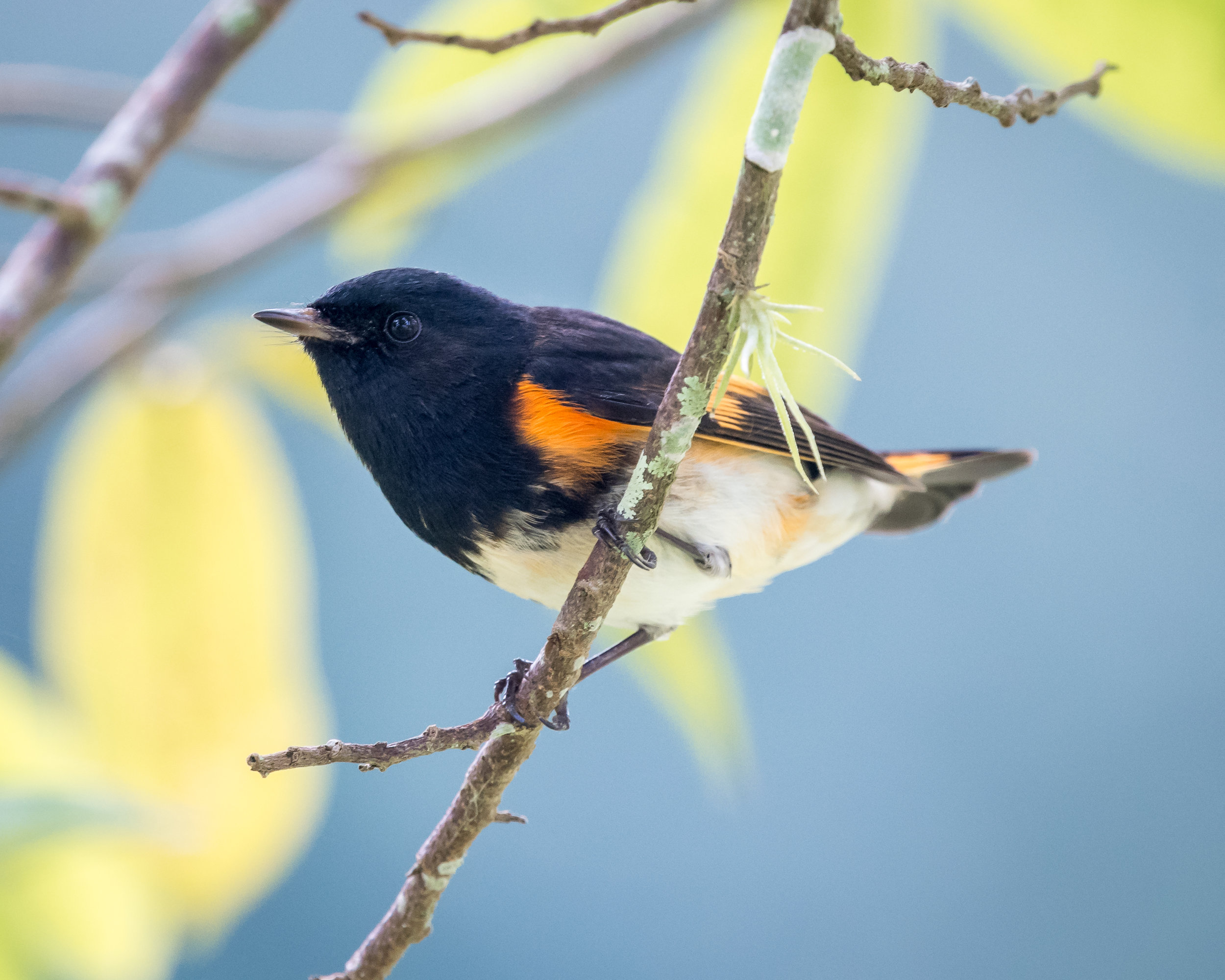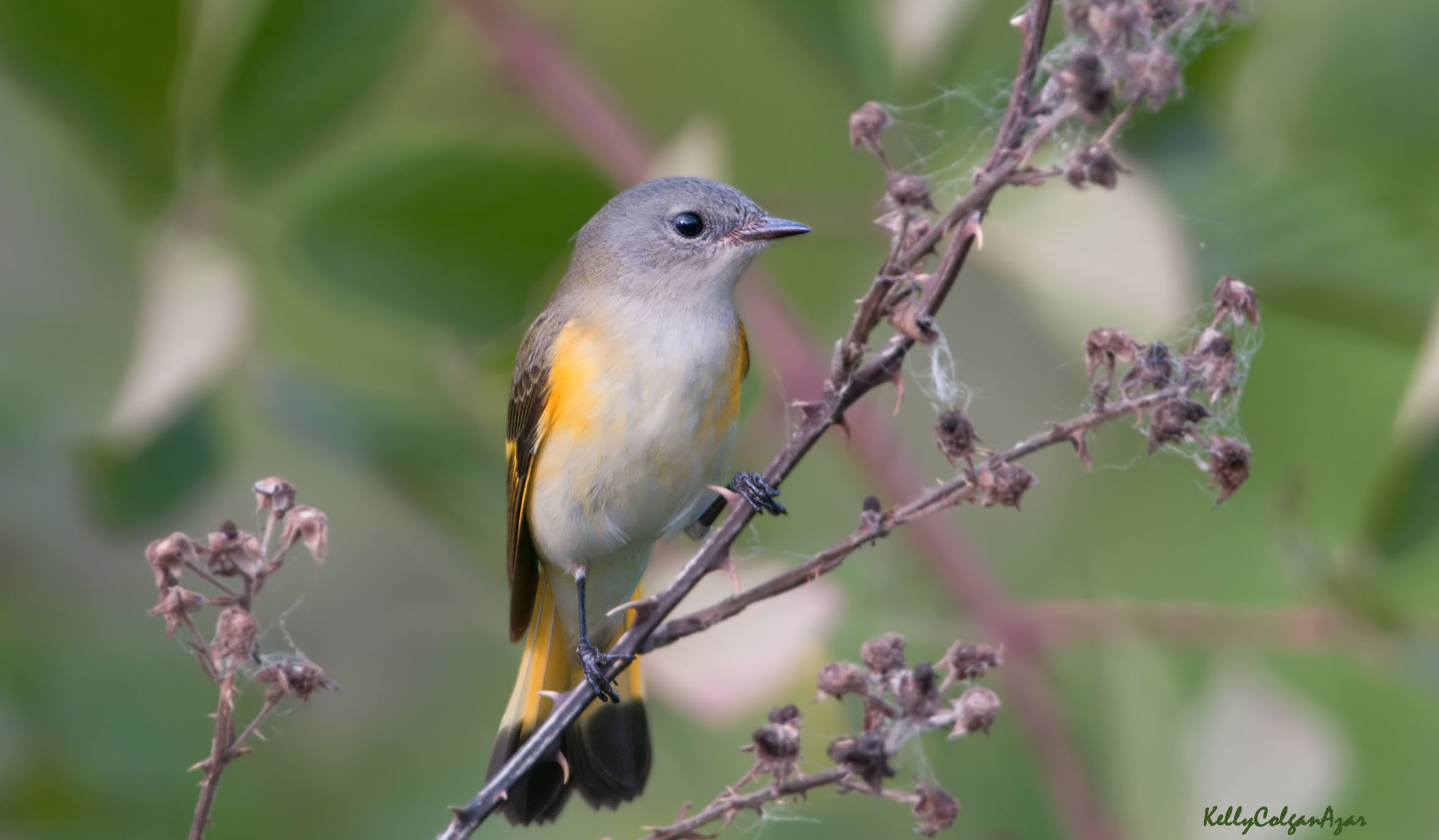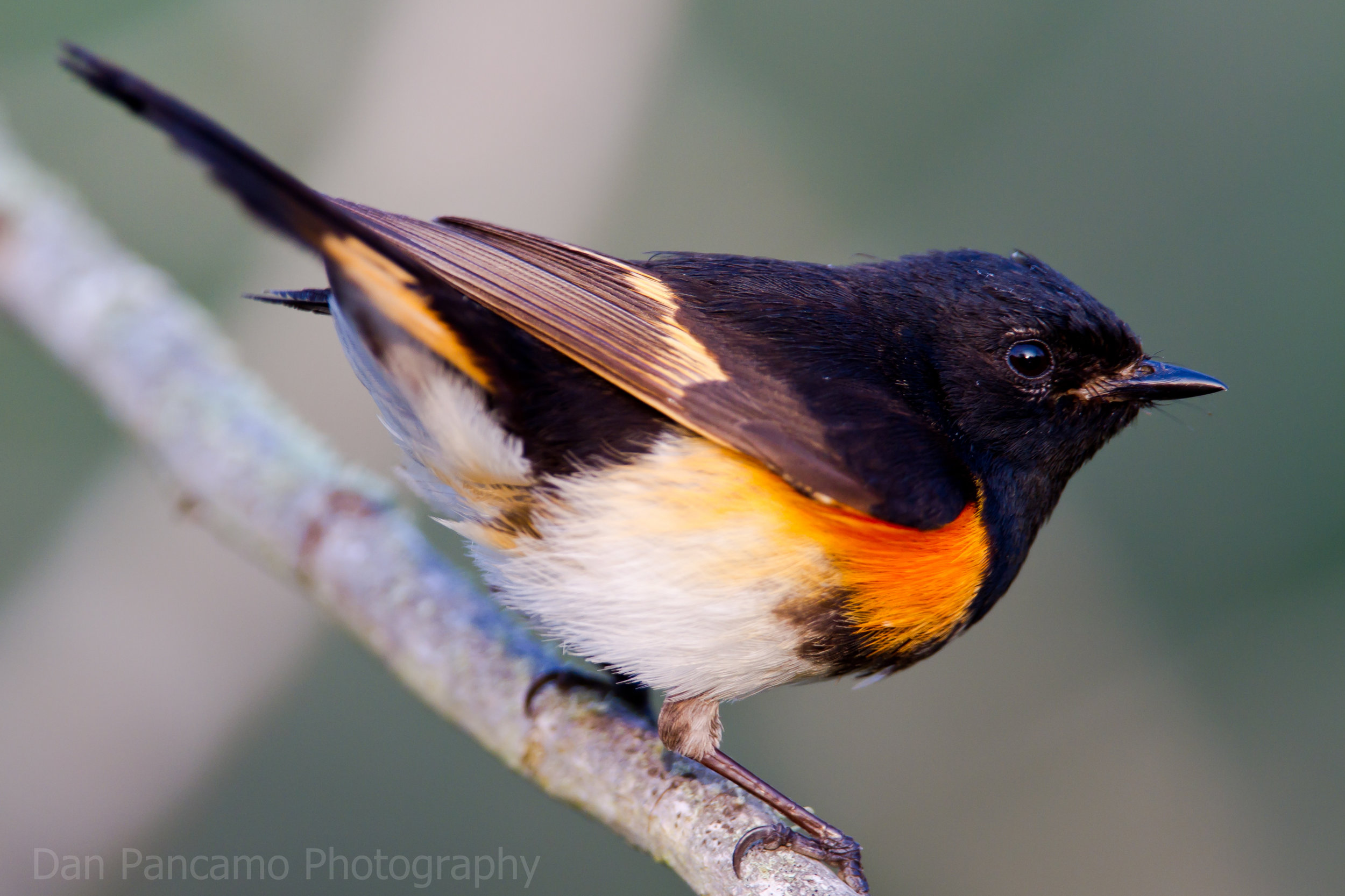The question to ask was then, was the habitat preference innate to males and females, or was this the result of competition?
On their overwintering grounds in Jamaica, redstarts are quite territorial. To test the competition theory, researchers conducted a removal experiment where territorial males in the mangrove forest were taken out of that habitat. The vacated habitat was filled within days by females and yearling males. It's as if these birds saw their neighbors' mansion evicted, waited a day for good measure, then quickly occupied the space.
This finding had profound implications for how we understand bird populations. Often, density is used as a proxy for quality of habitat. Yet, in these Jamaican habitats, redstarts were densest in the lower quality scrub habitat, and those despots in the mangrove forests were excluding other birds.
Researchers next asked, if these habitats differ in quality, how do they affect the health of redstarts? During the long overwintering period, from October until April or May, females and yearling males lost mass on average, while males (and the small number of females) in the mangroves maintained or increased body mass.










